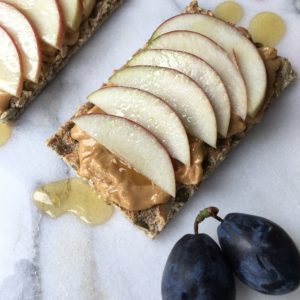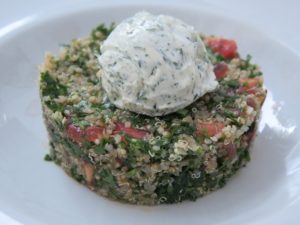Top Meatless Sources of Protein

You don’t have to go vegetarian or vegan to reap the benefits of these lifestyles. Simply cutting back on the amount of meat you eat each day can do wonders! There are many benefits to eating less meat; including reduced risk of heart attack and cancer. Here’s a list of our personal trainer’s favorite meatless sources of protein to add to your diet.
Lentils – 26 grams of protein per 100 grams
Lentils not only pack in a ton of fiber, but they are also extremely high in protein! In addition, they are rich in important minerals such as magnesium and potassium, low in sodium and are cholesterol-free.
Tips to eat more lentils: Lentils are very versatile and can be eaten as a side dish, added to mixed vegetables, mashed up and made into patties, or as lentil-bean soup.
Peanut Butter – 25 grams per 100 grams
Not only is peanut butter high in protein, but it’s loaded with potassium, fiber, magnesium and Vitamin B-6. Tips to eat more peanut butter: Add peanut butter to a smoothie or use it as a dip for apples and celery. Please note, this delicious, meatless treat is high in fat so eat in moderation.
Hemp Seed – 23 grams per 100 grams
Hemp seed has been growing in popularity thanks to its anti-inflammatory effect and because it’s easy to digest. You may have to hit up Whole Foods or Amazon to get them, but at least they’re an inexpensive protein source – even for a high quality, organic brand.
Tips to eat more hemp seed: Add hemp seeds to soups, salads, or smoothies!
Black Beans – 21 grams per 100 grams
Black beans have long been a favorite of vegetarians and vegans as an excellent source of protein. They’re also recommended to diabetes patients as they help maintain healthy blood sugar levels. In addition, they are low fat and have a healthy mix of protein and fiber.
Our personal trainers love using black beans in a side dish dip or in black bean burgers…so good!
Almonds – 21 grams per 100 grams
Almonds pack a ton of protein and includes calcium, iron, potassium and magnesium. They are high in healthy fats, so be careful to not overdo it.
Tips to eat more almonds: Almonds are a perfect portable snack, so take them on the go! You can also chop them up and add it to cereal, yogurt, granola, stir-fry, and baked goods. Opt for organic almonds to avoid pesticides and other chemicals found in conventional almonds. Also, go for the raw almonds instead of the dry roasted which contain added oil and sodium.
Sunflower Seeds – 21 grams per 100 grams
Sunflower seeds pack a lot of protein in a small package, so they’re great to take on the go! They are also known to lower cholesterol, have a calming effect thanks to its magnesium levels, and contain selenium which can help prevent cancer. Tips to eat more sunflower seeds: Sprinkle sunflower seeds to either sides or main dishes or use as a healthy salad ingredient.
Quinoa – 14 grams per 100 grams
This gluten-free protein source contains all the essential amino acids the body needs and is low on the Glycemic index which helps lower cholesterol, blood pressure and blood sugar levels. It’s also packed with nutrients such as fiber, potassium and other minerals that do a body good! Tips to eat more quinoa: Use quinoa as a substitute for rice or pasta!
Cottage Cheese – 11 grams per 100 grams
Thanks to its high protein content, low-fat cottage cheese is a go-to for dieters. It also contains tons of vitamins and minerals.
Tips to eat more cottage cheese: Pair cottage cheese with fresh fruit for a balanced meal of protein and carbohydrates.
Edamame – 11 grams per 100 grams
Edamame are green soybeans that have been picked prematurely, then boiled or steamed. In addition to protein, they contain healthy fats and nutrients as well as isoflavones.
Ready to eat more edamame? It’s a great snack or appetizer or add to salads.
Eggs – 13 grams per 100 grams
The incredible, edible egg offers an inexpensive and excellent way to add more protein to your diet. In order to get the full 13 grams, you need to eat two whole eggs (not just the whites!).
The choice is yours! Eat them for breakfast, add hard boiled eggs to a salad, or incorporate into a main dish such as quiche or in a casserole.
Greek Yogurt – 10 grams per 100 grams
Thanks to its higher protein content, lower fat content, and ability to replace sour cream in a recipe, Greek yogurt has surged in popularity in recent years. In fact, it can contain up to twice as much protein per 100 grams than regular yogurt and nearly five times more protein than sour cream!
Tips to eat more Greek yogurt: Use as a substitute for sour cream in Mexican dishes or eat with fruit and fiber-packed granola.
Combining Diet and Exercise
It’s always better to combine a better diet with other lifestyle changes like working out. Get started on your fitness journey with a free workout today! We’ll help you live a healthy lifestyle. Call or text our South Tampa wellness studio at (813) 440-3016!
[hc-hmw snippet=”Prospect-widget”]












